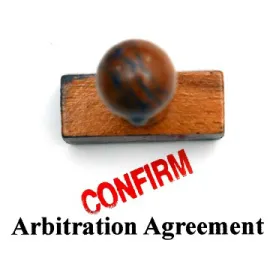A federal court must, of course, have subject matter jurisdiction to entertain an application to confirm or enforce an arbitration award. Fortunately, that jurisdiction is in general provided by statute when it comes to arbitral awards that are subject to the Convention on the Recognition and Enforcement of Foreign Arbitral Awards (the “New York Convention”) and Ch. 2 of the Federal Arbitration Act (“FAA”). See FAA § 203, 9 U.S.C. § 203. However, several federal courts have determined that they lack subject matter jurisdiction pursuant to FAA § 203 to confirm or enforce an “interim” international arbitration award. But just what qualifies as “interim” is not always clear.
In Al Raha Grp. for Tech. Servs. v. PKL Servs., Inc., No. 1:18-cv-04194, 2019 U.S. Dist. LEXIS 156249 (N.D. Ga. Sept. 6, 2019), the court held that it did not have subject matter jurisdiction to enforce an arbitral award of injunctive “interim measures,” which had been issued with the intent to maintain the status quo and to prevent the termination of a contract between the parties until the arbitration was completed.
The Al Raha court relied on authority from the Second Circuit in holding that District Courts lack authority to confirm arbitral awards that are not “final.” Id. at *3-*4, citing Banco de Seguros del Estado v. Mut. Marine Offices, Inc., 230 F.Supp.2d 362, 367-68 (S.D.N.Y. 2002), citing Metallgesellschaft AG v. M/V Capitan Constante, 790 F.2d 280, 283 (2d Cir. 1996).[1] Based on the same authority, the Georgia federal court opined that an interim award would be sufficiently final if it “finally and definitely disposes of a separate independent claim” even if it does not dispose of all of the claims that were submitted to arbitration. Id. at *4, citing Banco de Seguros, 230 F.Supp.2d at 368; Metallgesellsechaft, 790 F.2d at 283. It further opined that an award is final “if it resolves the rights and obligations of the parties definitively enough to preclude the need for further adjudication with respect to the issue submitted to arbitration.” Id. at *4, citing Ecopetrol S.A. v. Offshore Expl. & Prod. LLC, 46 F.Supp.3d 327, 336 (S.D.N.Y. 2014).
However, the Al Raha court determined that the award before it -- an “Interim Emergency Award” issued by an emergency arbitrator prior to the constitution of an arbitral panel to hear the arbitration on the merits -- was “an interim placeholder that did not purport to resolve finally any of the issues submitted to arbitration.” Id. at *6.
The award is on its face and in its substance...an interim award only meant to pause the crumbling relationship between the parties until such time as the full arbitration tribunal could be convened.
Id. at *5-*6.
Consequently, the Court determined that it did not have subject matter jurisdiction over the case before it, id., and left it to the eventual arbitration panel to “untangle” the parties’ dispute, id. at *6n.2.
Thus, the plaintiff in Al Raha had no recourse for enforcement when the defendant “ignored the clear ruling” of the emergency arbitrator. After all, “[a]rbitrators have no power to enforce their decisions. Only courts have that power.” Pacific Reinsurance Mgt. Corp. v. Ohio Reinsurance Corp., 935 F.2d 1019, 1023 (9th Cir. 1991).
By contrast, the parties would likely have obtained the judicial relief sought in several other federal circuits. As the Al Raha court noted, the Second, Sixth, and Ninth Circuits have viewed interim awards of equitable relief as sufficiently final for purposes of subject matter jurisdiction.
For example, the Ninth Circuit recognized that “[t]emporary equitable relief in arbitration may be essential to preserve assets or enforce performance which, if not preserved or enforced, may render a final award meaningless.” Pacific Reinsurance Mgt. Corp. v. Ohio Reinsurance Corp., 935 F.2d 1019, 1022-1023 (9th Cir. 1991). Cf. Island Creek Coal Sales Co. v. Gainesville, 729 F.2d 1046, 1049 (6th Cir. 1984).
Moreover, in Zeiler v. Deitsch, 500 F.3d 157, 169 (2d Cir. 2007), the Court enforced interim “practical orders to the parties to take various actions, including conducting accountings and providing documents,” in an arbitration where “the arbitrators were asked to preside over the continuing process of sorting out the details of a commercial relationship, entering operative decisions along the way.”
The Al Raha ruling, a case of first impression in the Eleventh Circuit, would seem to significantly limit the availability in an arbitration proceeding there of emergency or interlocutory relief to parties who are bound to arbitrate. Litigants beware.
[1] The Court also noted that the Eleventh Circuit had held, in deciding that a District Court did not have subject matter jurisdiction over an interim arbitration ruling, that “the FAA allows review of final arbitral awards only, but not of interim or partial rulings.” See id. at *5n.1, citing Schatt v. Aventuro Limousine & Transportation Serv., Inc., 603 F. App’x 881, 887 (11th Cir. 2015).




 />i
/>i
